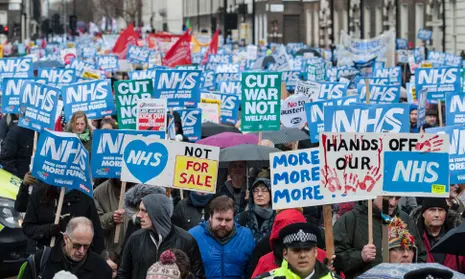According to a poll, seven in ten Brits think the NHS would soon commence charging within the next ten years, thus, breaking its tradition of providing free care to anybody who needs it.
A poll conducted by the Health Foundation in advance of the NHS’s 75th birthday, showed that, 71% of the public believes that, one of the service’s fundamental founding values from 1948 may be in danger.
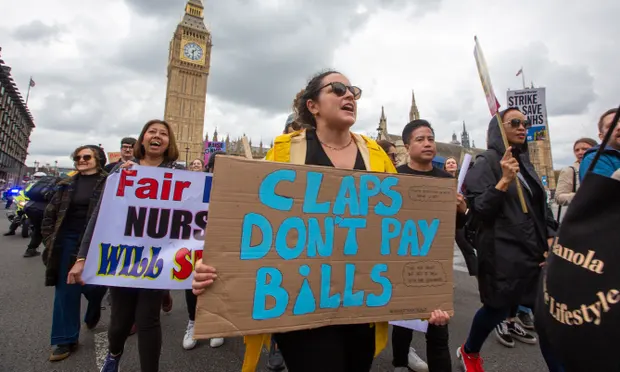
However, nearly three out of four individuals believed the NHS in its present free form is “crucial,” 51% said they intend to pay for certain services over the next ten years, 13% believed most services would require prior payment, and 7% said, all services would be subject to fees.
According to Tim Gardner, Associate Director of Policy at Health Foundation, the findings indicated an “expression of concern that, what the public values most about the NHS’s affordable care provided free at the point of use, may be under threat.”
“The durability of the principle that the health service would provide care based on need not ability to pay has been regularly questioned throughout its history, especially at times when the service is under great pressure.”
Tim Gardner, Associate Director of Policy at Health Foundation.
According to Gardner, requests for extreme reforms like charging for GP appointments and A&E visits have been mounting.

One or both of these suggestions have received support from politicians including Prime Minister Rishi Sunak, Liz Truss, and Sajid Javid, the former chancellor and health secretary. Critics have mocked them as “zombie” concepts that are both unrealistic and ineffective.
Moreover, 2,540 adults over the age of 16 participated in the Health Foundation poll, conducted by Ipsos, during when the NHS has been into stress due to shortages of staff, backlogs on waiting lists, and the threat of junior doctors and consultant strikes this month.
The head of NHS England has encouraged the government and health unions to resolve their conflict as quickly as possible, warning that, clients would “pay the price” for the unprecedented depth of the strike. She emphasized that, strikes cannot become “business as usual” for the NHS.
Though, there has been a stalemate, the British Medical Association (BMA) appealed to Sunak, requesting that the government engaged in negotiations to end the junior doctors’ strike’s impasse, and agree on a compromise. The health secretary, Steve Barclay, blamed the junior Doctors of “suddenly” leaving meetings.
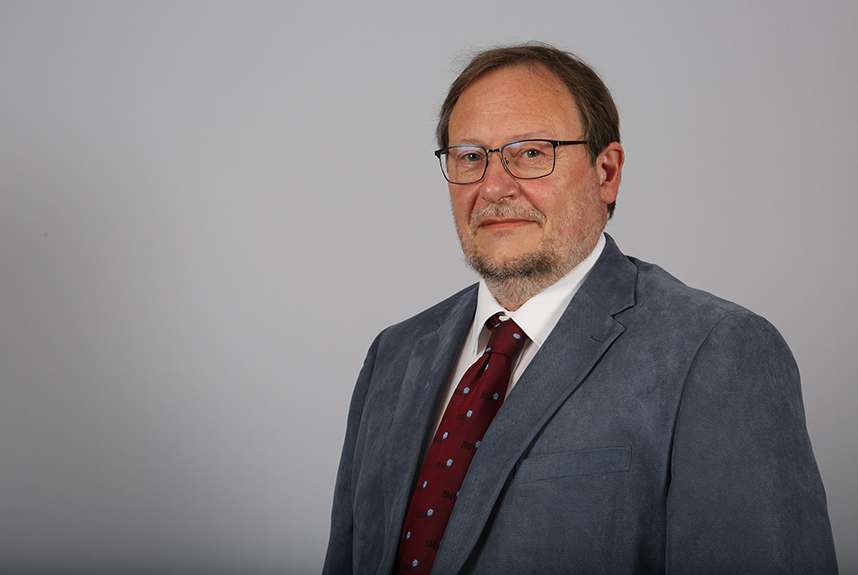
However, Prof. Philip Banfield, the incoming chair of the BMA council, in his speech said contended that, the government has refused to attend Acas or accept that, the “devastation on the NHS has been wrought by successive UK governments.”
Additionally, Ipsos poll revealed that, despite the escalating difficulties, most Brits have endorsed healthcare providers in their series of strikes over wages and conditions this year, with support for junior doctors, at around 56% in June.
Data indicated that, the labor dispute has already culminated in more than 648,000 rescheduled meetings, treatments, and operations, aggravating backlogs, and two days of consultants strikes planned for the middle of the month, after five days of junior physicians’ strikes.
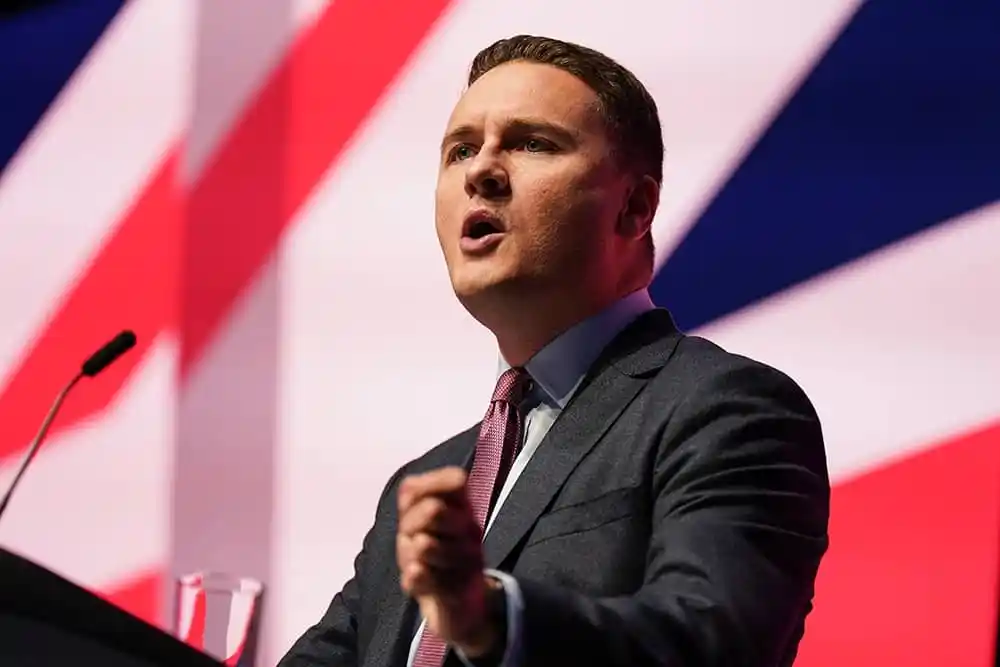
The opposition Health Secretary, Wes Streeting, stated that, there is “no doubt that having run down the NHS over 13 years, many Conservatives will now use their failure to argue that its founding principles must be abandoned” by making the argument for charging. He stated that Labour will “never let this happen.”
“The future of the NHS will be on the ballot at the next election. It was Labour who created the NHS and made sure it was there for us when we need it, delivering the shortest waiting times and highest patient satisfaction in history. It will fall to the next Labour government to rescue the NHS from the biggest crisis in its history, and breathe new life into the service so it is still there for us in the next 75 years.”
Wes Streeting, Labour Shadow Health Secretary.
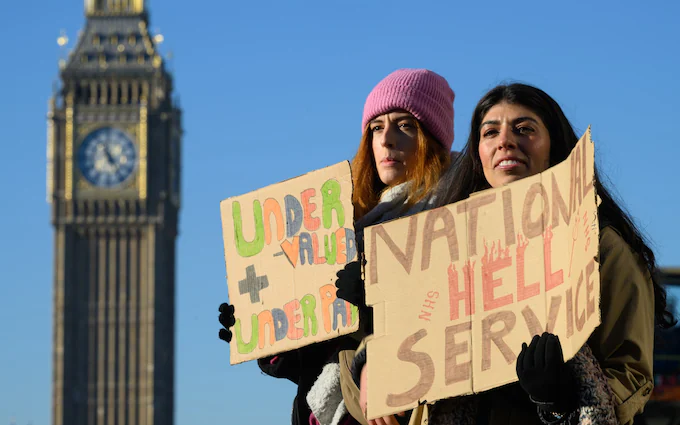
Despite high waiting periods, rising discontent among patients, and mounting worries that the NHS in England is “broken” and unable to offer emergency care rapidly, the NHS is expected to be granted only a 1.2% increase in funding this year, which is only a third of its historical average of 3.6%.

